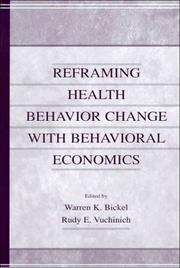| Listing 1 - 9 of 9 |
Sort by
|
Book
Year: 1998 Publisher: Cambridge, Mass. National Bureau of Economic Research
Abstract | Keywords | Export | Availability | Bookmark
 Loading...
Loading...Choose an application
- Reference Manager
- EndNote
- RefWorks (Direct export to RefWorks)

ISBN: 0306452413 1489935932 1489935916 Year: 1996 Publisher: New York London Plenum Press
Abstract | Keywords | Export | Availability | Bookmark
 Loading...
Loading...Choose an application
- Reference Manager
- EndNote
- RefWorks (Direct export to RefWorks)
Contrôle des stupéfiants --- Drogue [Lutte contre la ] --- Drogues [Lutte contre les ] --- Drogues--Contrôle --- Drogues--Lutte contre --- Drug and Narcotic Control --- Drug control --- Drug control--Government policy --- Drug enforcement --- Drug policy --- Drug traffic control --- Drug traffic--Government policy --- Drug traffic--Prevention --- Drugs and state --- Geneesmiddelen--Regeringspolitiek --- Lutte antidrogue --- Lutte contre la drogue --- Lutte contre le trafic de stupéfiants --- Médicaments--Politique gouvernementale --- Narcotics [Control of ] --- Narcotics [Control of ]--Government policy --- Pharmaceutical policy --- State and drugs --- State and pharmacy --- Stupéfiants [Lutte contre les ] --- Toxicomanie--Lutte contre --- Trafic de drogues--Lutte contre --- Trafiquants de drogues--Lutte contre --- Verdovende middelen [Strijd tegen de ] --- War on drugs --- Drug abuse --- -Drug abuse --- -Drug control. --- Drug law enforcement --- Drug traffic --- Drugs --- Narcotics, Control of --- Vice control --- Drug use --- Recreational drug use --- Substance abuse --- Government policy --- Prevention --- -Psychological aspects --- Treatment --- Drug control. --- Substance Abuse --- Substance Dependence --- Behavior, Addictive. --- Public Policy --- Government policy. --- Psychological aspects. --- prevention & control. --- psychology. --- Public policy --- Psychological aspects --- Prevention&delete& --- Treatment&delete&
Digital
Year: 1998 Publisher: Cambridge, Mass. National Bureau of Economic Research
Abstract | Keywords | Export | Availability | Bookmark
 Loading...
Loading...Choose an application
- Reference Manager
- EndNote
- RefWorks (Direct export to RefWorks)
Digital
Year: 1998 Publisher: Cambridge, Mass. National Bureau of Economic Research
Abstract | Keywords | Export | Availability | Bookmark
 Loading...
Loading...Choose an application
- Reference Manager
- EndNote
- RefWorks (Direct export to RefWorks)
Book
ISBN: 9781433804779 Year: 2010 Publisher: Washington, D.C. Amderican Psychological Association
Abstract | Keywords | Export | Availability | Bookmark
 Loading...
Loading...Choose an application
- Reference Manager
- EndNote
- RefWorks (Direct export to RefWorks)

ISBN: 0805827331 Year: 2000 Publisher: Mahwah Erlbaum
Abstract | Keywords | Export | Availability | Bookmark
 Loading...
Loading...Choose an application
- Reference Manager
- EndNote
- RefWorks (Direct export to RefWorks)
Health behavior --- Medicine and psychology --- Economic aspects
Book
ISBN: 143380820X Year: 2010 Publisher: Washington, District of Columbia : American Psychological Association,
Abstract | Keywords | Export | Availability | Bookmark
 Loading...
Loading...Choose an application
- Reference Manager
- EndNote
- RefWorks (Direct export to RefWorks)
Impulse. --- Decision making --- Delay discounting (Psychology) --- Psychological aspects.
Book
Year: 1998 Publisher: Cambridge, Mass. National Bureau of Economic Research
Abstract | Keywords | Export | Availability | Bookmark
 Loading...
Loading...Choose an application
- Reference Manager
- EndNote
- RefWorks (Direct export to RefWorks)
Evidence that economic principles may be employed to predict the rates at which cigarettes are consumed is presented from several laboratory experiments. In these experiments, cigarette-deprived smokers were required to make a effortful response to earn cigarette puffs. Changing the number of responses required per puff is conceptualized as a price manipulation. Our experiments show that these price increases decrease cigarette consumption and that price elasticity of demand increases with increases in price. When from 74 different smokers, participating in 17 different experiments, in our laboratory were analyzed, five demographic variables were related to rates of earning and smoking cigarettes in the lab: 1) males smoked more than females; 2) less-educated individuals tended to smoke more than better-educated smokers; 3) higher rates of smoking were observed in individuals with high Fagerström smoke more than heavy drinkers; and 5) unemployed subjects smoked more than employed individuals. Demographic effects on price elasticity did not accord as well with econometric data. Finally, we discuss the ability of behavioral- economic laboratory experiments to model cigarette smoking in the natural economy, and the validity of using these laboratory results as a means of assessing the likely effects of public-policy initiatives. The results from one such experiment are presented that suggest the economic concept of inferior goods may be informative in understanding nicotine-replacement products and the likely effects of differential pricing of cigarettes and these replacement products.
Smoking --- Prevention
Book
Year: 1998 Publisher: Cambridge, Mass. National Bureau of Economic Research
Abstract | Keywords | Export | Availability | Bookmark
 Loading...
Loading...Choose an application
- Reference Manager
- EndNote
- RefWorks (Direct export to RefWorks)
Polydrug abuse is common among substance abusers, but few empirical or theoretical methods accurately characterize this phenomenon. This chapter describes a simulation paradigm that was developed to apply a behavioral economic analysis to understanding polydrug abuse. Heroin abusers 'purchased' drugs as the price of drugs or income varied. In Experiment 1, heroin price rose while prices of other drugs and income remained constant. Heroin purchases significantly decreased as heroin prices increased. As price of heroin rose, valium and cocaine purchases increased and cross-price elasticity coefficients indicated these drugs substituted for heroin. In Experiment 2, prices of both heroin and valium increased separately to determine symmetry of the substitution effect. While valium substituted for heroin, heroin purchases were independent of valium prices. Marijuana and alcohol purchases were independent of valium price, but both these drugs were weak substitutes for heroin. In Experiment 3, income rose while prices remained constant. At some changes in income, demand for heroin and cocaine was income elastic, with purchases rising in greater proportion than income. Marijuana, alcohol, and valium purchases did not vary significantly as a function of income. Choices in this simulation were reliable both between and within subjects. Moreover, drug choices in the simulation were correlated with drug use as determined by urinanalysis testing. These results are discussed in terms of the utility of a behavioral economics approach for characterizing polydrug abuse.
| Listing 1 - 9 of 9 |
Sort by
|

 Search
Search Feedback
Feedback About UniCat
About UniCat  Help
Help News
News